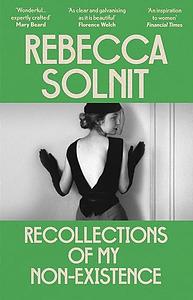You need to sign in or sign up before continuing.
Take a photo of a barcode or cover
Not perfect, but interesting. Well worth the read imo.
hopeful
inspiring
slow-paced
She'll be always my favorite essayist
informative
reflective
medium-paced
hopeful
informative
inspiring
reflective
fast-paced
emotional
funny
hopeful
inspiring
reflective
slow-paced
Best book of the year. Incredible.
informative
reflective
medium-paced
reflective
slow-paced
informative
reflective
medium-paced
challenging
informative
reflective
sad
medium-paced
"To be a young woman is to face your own annihilation in innumerable ways, or to flee it or the knowledge of it, or all these things at once. The death of a beautiful woman is, unquestionably, the most poetical topic in the world, said Edgar Allen Poe, who must not have imagined it from the perspective of women who preferred to live."
At its best when talking about feminism, which is most of the time. Part of the time she talks about why she became a writer. Given that she notes an aversion to talking about negative child experiences due to that kind of memoir narrative being played out, it's surprising she writes at all about why she became a writer. Writers talking about why they write in their memoirs is about as played out as it gets.
The text is full of poetry, and the cadence is natural. The overarching theme is a criticism of the idea that women's progress can be measured in terms of the number of bills that make it easier for workplace harassment victims to sue. Solnit documents the pervasiveness of women's oppression and makes its horror loud, in the way we've organized interpersonal relationships, in the way we understand one another, in the way violence is downplayed or ignored.
"Mostly when people write about the trauma of gendered violence, it's described as one awful exceptional event or relation as though you've suddenly fell in the water. But what if you're swimming through it your whole life, and there's no dry land in sight?"
At its best when talking about feminism, which is most of the time. Part of the time she talks about why she became a writer. Given that she notes an aversion to talking about negative child experiences due to that kind of memoir narrative being played out, it's surprising she writes at all about why she became a writer. Writers talking about why they write in their memoirs is about as played out as it gets.
The text is full of poetry, and the cadence is natural. The overarching theme is a criticism of the idea that women's progress can be measured in terms of the number of bills that make it easier for workplace harassment victims to sue. Solnit documents the pervasiveness of women's oppression and makes its horror loud, in the way we've organized interpersonal relationships, in the way we understand one another, in the way violence is downplayed or ignored.
"Mostly when people write about the trauma of gendered violence, it's described as one awful exceptional event or relation as though you've suddenly fell in the water. But what if you're swimming through it your whole life, and there's no dry land in sight?"






